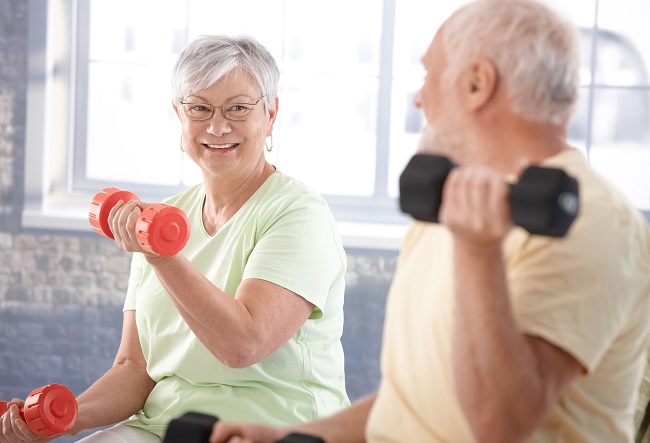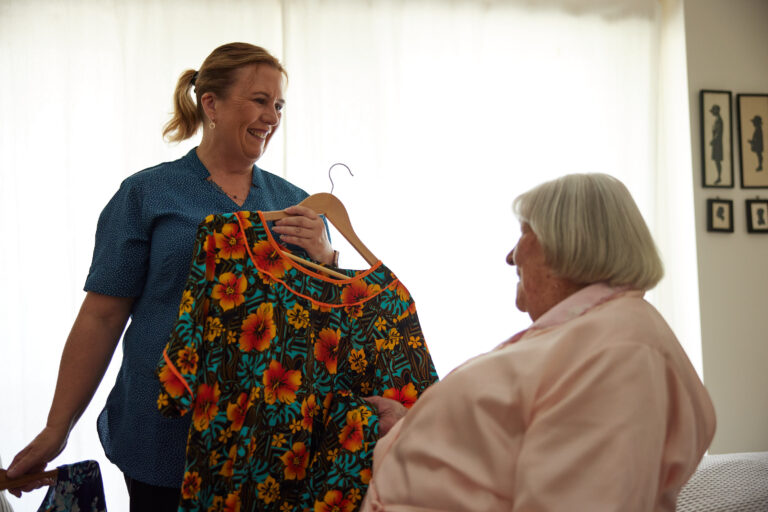10 hydration tips for seniors
It’s important for older adults and their loved ones to make an effort to drink plenty of water and stay hydrated to stay healthy and well.

As we get older, our body’s ability to feel thirsty and conserve water slowly diminishes. This means the risk of dehydration increases and can lead to hospitalisation or even more serious health risks for older adults.
Dehydration in older adults is often due to inadequate fluid intake, but can be caused by many other factors such as excessive sweating, loss of blood, diarrhoea, diseases such as diabetes, as well as the side effect of some medications.
For this reason it’s important for older adults to make an effort to drink enough water to prevent dehydration and stay healthy and well.
Did you know?
- According to the Australian Bureau of Statistics, the average Australian only drinks 1.29L of water per day, which is well below the recommended 2-2.5L recommended by Healthdirect.gov.au.
- It only takes a 2% loss of total water for your body to start feeling thirsty and dehydration symptoms to begin. Once you’re at this point, your body is already in a state of dehydration.
- Caffeinated drinks and alcohol can dehydrate you.
- Dry mouth, high heart rate, headaches and dizziness can be physical signs of dehydration.
- When the body doesn't have enough water, the amount of blood in the body (blood volume) decreases. This can cause low blood pressure - increasing the risk of injury from falls in older people.
- If an older person has a heart condition, they may actually have to limit their fluids. Older people should also be aware that too much water can dangerously reduce blood sodium levels. Please seek medical advice.

Please note: This information is not medical advice. Always seek the guidance of your doctor or other qualified health professional with any questions you may have regarding your health or a medical condition.
Here are 10 tips for staying hydrated:
1. Eat foods with naturally high water content
Many fruits and vegetables such as cucumbers, tomatoes, watermelon, grapes, and oranges have high water content and can ward off a sense of thirst and help you stay hydrated throughout the day.
2. Set hydration reminders
Many people use their smartphones to set reminders or alarms – this could be a good way to remind you to drink on a regular basis throughout the day. You could also introduce drinking water as part of your daily routine to ensure you get enough fluids. For example, you could drink a small glass of water first thing in the morning every day, before hopping in the shower, or with every meal. The more you can make drinking water a routine, the easier it will be to avoid dehydration.
3. Be mindful of conditions that may increase the risk of dehydration
For example, you may be working in the garden on a hot summer day. In this instance, you may be sweating more than usual and therefore more water intake is required to prevent becoming dehydrated.
4. Consider alternative beverages and fluid sources
If drinking plain water doesn’t appeal to you, look for other options to stay hydrated. For example, water infused with fruit of a flavour enhancer can make drinking water more appealing. Warm soups and broths can also be a nutritious way to increase your daily fluid intake. Ice blocks are another great alternative – especially on a warm summer’s day.
5. Always carry a water bottle with you
Carrying a water bottle isn’t always convenient, but it serves as a reminder to stay hydrated and provides constant access to water. If you prefer drinking chilled water, you could invest in a stainless steel, insulated water bottle which can keep your water cool for up to 24 hours. This is a great way to take chilled water with you when you’re on the go.
Check out our handy article with tips on gardening in summer

6. Wear protective clothing when out in the sun
This includes wearing a hat that shields the face, and loose breathable clothing. This will help keep your body temperature lower and reduce your risk of dehydration.
7. Drink plenty of water when you exercise
When you exercise, your body sweats as it tries to return to its optimal temperature. However in doing so, you also lose body fluid. It’s therefore important you drink plenty of water before, during and after exercise to replace the fluids you lose when you sweat.
8. Limit alcohol consumption on hot days
Another way to minimise your risk of dehydration is to limit your alcohol consumption – especially on hot days. Much like caffeine, alcohol interferes with the mechanisms that regulates the water levels in your body. It removes fluids from your blood through your renal system, which includes the kidneys, ureters and bladder at a much quicker rate than other liquids, leaving us dehydrated.
9. Incorporate vegetables into your diet
Veggies such as squash, zucchini, broccoli, cauliflower and cucumbers all provide small amounts of water, especially if you steam them. Iceberg lettuce is also great because it has a high water content, and is a great addition to your meals and salads.
10. Monitor your indoor environment
Close your blinds or windows to reduce the indoor heat, and make sure the air conditioning or fans are working well. Sitting inside a hot, stuffy house can increase your risk of mild dehydration, so make sure you space is cool and well-ventilated.
Learn 9 exercises to improve your balance and help minimise falls

Want to keep doing the things
you love?
Find out more about IRT Home Care and how we can assist you or your loved one to keep living independently at home. IRT has been providing home care services for more than 30 years, offering support to seniors in NSW, Qld and the ACT.
Find out moreYou may also like
Here's what happens if you neglect your physical health
Staying fit can be hard sometimes, but we've got plenty of simple tips to help keep you active.
10 Fall Prevention Tips for Older People
We hear the phrase “he/she has had a fall” all too often. What are the consequences, and most importantly, how can we prevent falls from…

